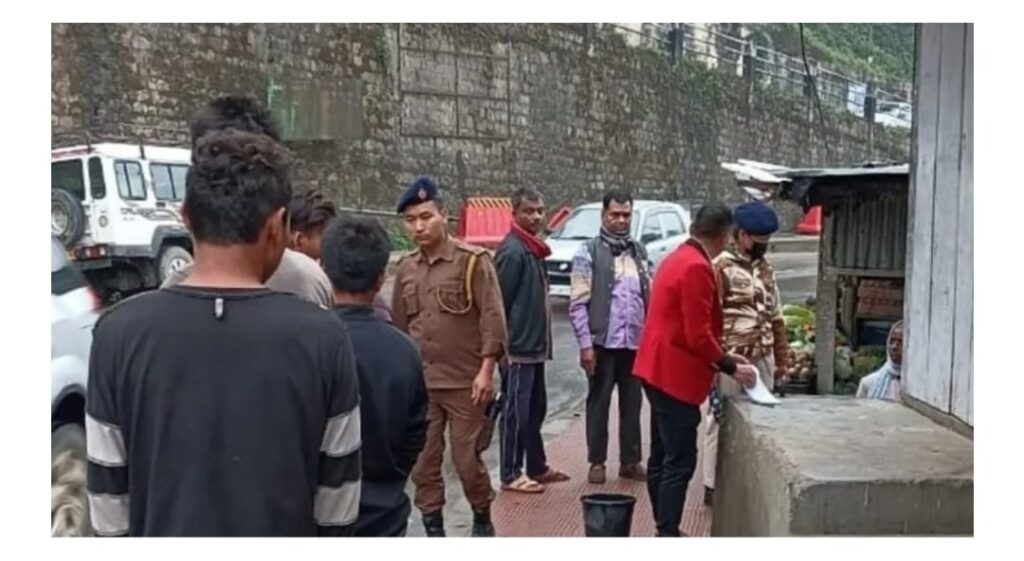The Nagaland government recently conducted a day-long verification drive in and around Kohima town to ensure compliance with the Inner Line Permit (ILP) regulations. This drive aimed to detect individuals who were defaulting on their ILP requirements, with the objective of maintaining the integrity of the local population and regulating the entry and stay of non-residents in the state. Government sources have revealed that a total of 325 ILP defaulters were detected during the operation, leading to the collection of penalties amounting to Rs 1.2 lakh. This article examines the significance of the ILP system, the enforcement measures taken by the government, and the importance of preserving the cultural heritage of Nagaland.
The Importance of the Inner Line Permit System: The Inner Line Permit system serves as a protective mechanism to safeguard the interests of the indigenous population of Nagaland. Implemented by the state government, it acts as a permit requirement for individuals from outside the state who wish to visit or reside in Nagaland for an extended period. The ILP system is instrumental in regulating the entry and movement of non-residents, thereby controlling the potential challenges that may arise from unregulated population growth, resource exploitation, and unauthorized immigration. By upholding the ILP regulations, the government ensures a balanced socio-economic environment while preserving the cultural identity of Nagaland.
The Verification Drive in Kohima: The recent day-long verification drive in and around Kohima town was a proactive measure undertaken by the Nagaland government to enforce ILP compliance. During the operation, a total of 325 ILP defaulters were identified. These individuals failed to acquire or renew their Inner Line Permits within the stipulated timeframes. The verification drive aimed to address concerns regarding unauthorized residency and to reinforce the significance of complying with the ILP requirements. Such initiatives act as deterrents and encourage individuals to adhere to the regulations, thereby promoting a sense of responsibility among both residents and non-residents in Nagaland.
Swift Action and Penalties Imposed: Following the detection of ILP defaulters, the authorities took prompt action to ensure accountability. Penalties amounting to Rs 1.2 lakh were collected from the violators, signifying the seriousness with which the government views ILP compliance. The revenue generated from these penalties will contribute to the development and maintenance of infrastructure and public services in Nagaland, benefitting the local population. These measures demonstrate the government’s commitment to preserving the rights and well-being of its indigenous residents and maintaining the socio-economic balance within the state.
Preserving the Cultural Heritage of Nagaland: The enforcement of the ILP system is closely linked to the preservation of Nagaland’s cultural heritage. By regulating the entry of non-residents, the government seeks to protect and promote the unique traditions, customs, and social fabric of the indigenous population. Nagaland is renowned for its rich cultural diversity, and the ILP system acts as a safeguard against any dilution or erosion of this heritage. It allows the state to strike a delicate balance between facilitating appropriate tourism and economic activities while ensuring the primacy of the local population’s rights and interests.
Public Awareness and Responsiveness: The verification drive in Kohima serves as a reminder to individuals, both residents and non-residents, of the importance of complying with the ILP regulations. It emphasizes the need for greater public awareness regarding the permit requirements and their significance in maintaining Nagaland’s socio-cultural integrity. The government’s proactive approach in conducting such drives fosters a sense of responsibility among residents and visitors alike, promoting a more harmonious and inclusive society.

